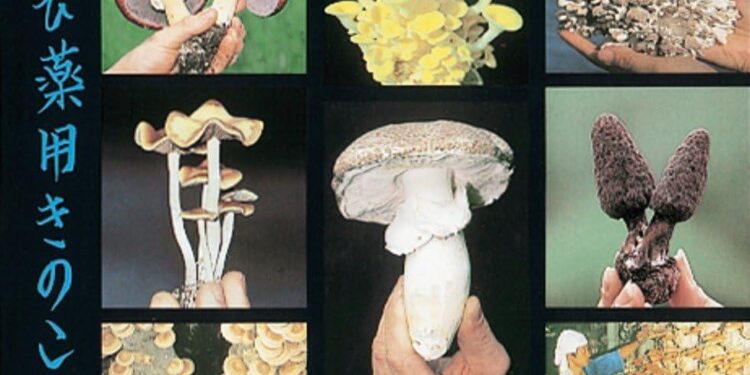As interest in natural remedies continues to surge, medicinal mushrooms have emerged as a popular supplement touted for their potential health benefits. But do these fungal products live up to the claims often made by manufacturers and enthusiasts? In a new podcast episode, The Guardian takes an in-depth look at the science behind medicinal mushrooms, examining whether they truly deliver on their promises or simply ride a wave of wellness trends. This article explores the key findings from the podcast, assessing the evidence and expert opinions shedding light on the efficacy of these intriguing supplements.
Evaluating the Scientific Evidence Behind Medicinal Mushroom Claims
Over recent years, medicinal mushrooms such as reishi, cordyceps, and lion’s mane have surged in popularity, touted for benefits ranging from immune support to cognitive enhancement. However, when dissecting the scientific literature, the evidence remains complex and often inconclusive. Numerous studies, predominantly small-scale or conducted on animal models, suggest potential bioactive compounds in these fungi with antioxidant, anti-inflammatory, and neuroprotective properties. Yet, large-scale randomized controlled trials (RCTs)-the gold standard for clinical validation-are scarce or yield mixed results, making it difficult to definitively endorse these products as effective medical treatments.
Key challenges arise from variations in mushroom species, extraction methods, and dosage forms, which complicate direct comparisons across studies. Meanwhile, claims of immune modulation and cancer-fighting effects appear promising but require further robust human trials. The table below summarizes the current state of research on popular medicinal mushrooms:
| Mushroom | Claimed Benefit | Evidence Level | Notes |
|---|---|---|---|
| Reishi | Immune support, stress relief | Moderate | Some RCTs show immune markers improvement, but outcomes vary |
| Lion’s Mane | Cognitive function, nerve regeneration | Preliminary | Animal studies promising; human trials limited in size |
| Cordyceps | Energy, athletic performance | Inconclusive | Mixed findings; placebo-controlled studies needed |
| Turkey Tail | Cancer adjunct therapy | Emerging | Some clinical trials in combination with chemotherapy |
- Standardization issues: Different brands may vary widely in bioactive compound concentration.
- Regulatory gaps: Most products fall under dietary supplements, not pharmaceuticals.
- Placebo effects: Psychological factors may influence perceived benefits.
Expert Opinions Reveal Benefits and Limitations of Popular Products
Leading mycologists and healthcare professionals weigh in on the surge of medicinal mushroom products flooding the market. According to experts, some extracts demonstrate promising immunomodulatory and anti-inflammatory properties, particularly compounds like beta-glucans found in species such as reishi and lion’s mane. These bioactive components have been linked to enhanced cognitive function and immune response, though results vary widely depending on extraction methods and dosage consistency. Standardization remains a significant hurdle, making it difficult for consumers to identify genuinely effective products.
Despite growing enthusiasm, specialists caution against overreliance on these supplements as miracle cures. Limitations include the lack of large-scale clinical trials and inconsistent regulatory frameworks across regions. Below is a summary of expert consensus on key medicinal mushroom products, highlighting both benefits and shortcomings:
| Mushroom Type | Reported Benefits | Noted Limitations |
|---|---|---|
| Reishi | Immune support, stress relief | Variable potency, slow onset |
| Lion’s Mane | Cognitive enhancement, nerve repair | Limited human studies, bioavailability issues |
| Chaga | Antioxidant properties | Possible contamination, heavy metals |
| Turkey Tail | Gut microbiome support, cancer adjunct | Limited direct evidence in healthy users |
With benefits tempered by scientific and regulatory gaps, experts recommend consumers approach medicinal mushroom products with informed caution, emphasizing the importance of sourcing high-quality formulations backed by transparency and research.
Consumer Advice on Choosing Reliable and Effective Mushroom Supplements
When selecting mushroom supplements, consumers should prioritize transparency and scientific backing. Look for products that clearly state the species of mushrooms used, the extraction method, and standardized levels of active compounds like beta-glucans or triterpenoids. Avoid supplements that use ambiguous terms such as “mushroom blend” without further details. Additionally, third-party lab testing certifications can be a strong indicator of quality and safety, ensuring that the product contains what the label promises without harmful contaminants.
Understanding the source and cultivation process is equally important. Wild-harvested mushrooms might vary in potency and risk contamination, while sustainably farmed mushrooms grown under controlled conditions often provide consistency and reliability. To aid in making informed choices, here’s a quick reference table outlining key factors to check before purchase:
| Factor | What to Look For | ||||||||||
|---|---|---|---|---|---|---|---|---|---|---|---|
| Species Identification | Specific names like Reishi, Lion’s Mane, or Cordyceps | ||||||||||
| Extraction Method | Dual extraction (hot water + alcohol) preferred | ||||||||||
| Active Compound Levels | Standardized beta-glucan content indicated | ||||||||||
| Third-Party Testing | Certificates of analysis available | ||||||||||
| Source Quality |
When selecting mushroom supplements, consumers should prioritize transparency and scientific backing. Look for products that clearly state the species of mushrooms used, the extraction method, and standardized levels of active compounds like beta-glucans or triterpenoids. Avoid supplements that use ambiguous terms such as “mushroom blend” without further details. Additionally, third-party lab testing certifications can be a strong indicator of quality and safety, ensuring that the product contains what the label promises without harmful contaminants. Understanding the source and cultivation process is equally important. Wild-harvested mushrooms might vary in potency and risk contamination, while sustainably farmed mushrooms grown under controlled conditions often provide consistency and reliability. To aid in making informed choices, here’s a quick reference table outlining key factors to check before purchase:
|










